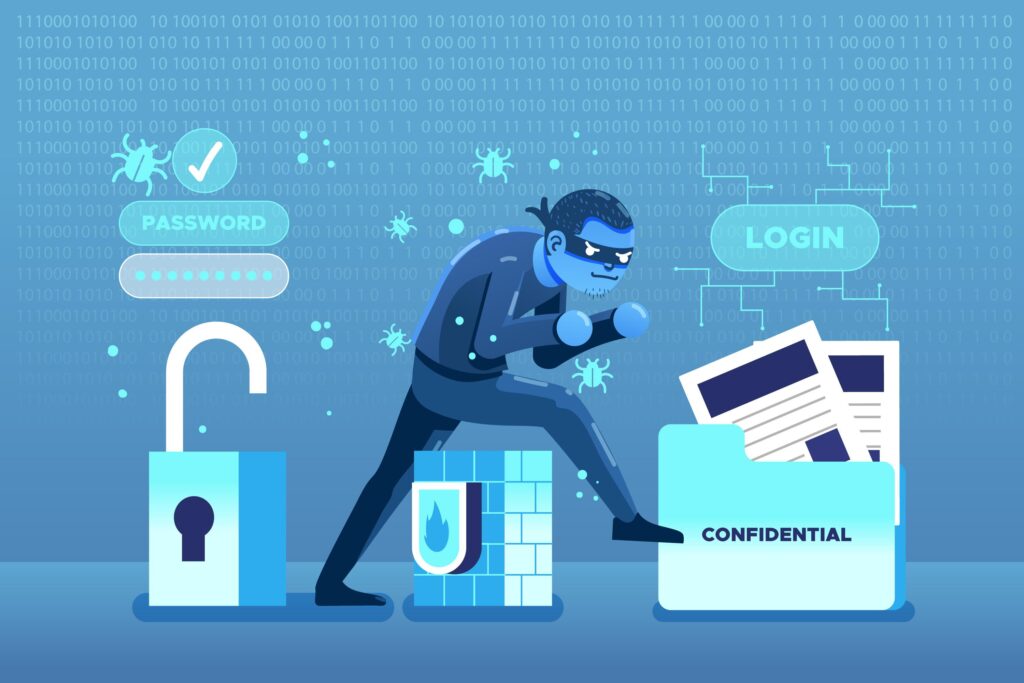Imagine you’re the guardian of two valuable treasures privacy and security. On one hand, you want to protect sensitive information from prying eyes. On the other, you need to ensure that the digital world remains a safe place. This is the ethical conundrum of hacking – a world where individuals and organizations must navigate the fine line between safeguarding privacy and strengthening security.

Understanding Hacking Ethics
Before we delve into the balancing act, it’s crucial to understand the core ethical principles of hacking:
-
Privacy: Privacy is a fundamental human right. It includes the right to keep personal information confidential and secure. Hacking that invades someone’s privacy is often considered unethical.
-
Security: Security is about safeguarding people, organizations, and nations from digital threats. Ethical hacking, often called “white-hat” hacking, focuses on improving security by identifying and fixing vulnerabilities.
-
Consent: Ethical hackers gain permission before probing systems. Unauthorized intrusion is unethical and illegal.
The Ethical Hacking Spectrum
Hacking can be categorized along an ethical spectrum:
1. White-Hat Hacking (Ethical): White-hat hackers are the “good guys.” They work to improve security, often hired by organizations to find and fix vulnerabilities before malicious hackers can exploit them.
2. Grey-Hat Hacking (Ethical Uncertainty): Grey-hat hackers operate in a morally ambiguous zone. They may discover vulnerabilities without permission but have good intentions to alert the owner.
3. Black-Hat Hacking (Unethical): Black-hat hackers are the “bad guys.” They hack with malicious intent, steal data, and exploit vulnerabilities for personal gain.
Balancing Act: Protecting Privacy and Enhancing Security
Finding the right balance between privacy and security is a complex challenge. Here’s how ethics play a role:
-
Consent Matters: Ethical hacking begins with consent. Hacking without permission, even with good intentions, can infringe on privacy and be seen as unethical.
-
Responsible Disclosure: Ethical hackers follow responsible disclosure practices. They notify organizations about vulnerabilities they discover and give them time to fix the issue before disclosing it publicly.
-
Legality: Hacking must always be within the bounds of the law. Unlawful hacking not only breaches ethical standards but also has legal consequences.
-
Data Protection: Ethical hackers take steps to protect any data they access during their assessments. They should not abuse or misuse this information.
-
Intention Matters: The intent behind hacking is crucial. Ethical hackers aim to enhance security, while malicious hackers intend harm.
-
Learning and Responsibility: Ethical hackers engage in continuous learning to stay up-to-date with security practices. They also bear a great responsibility in their role as security gatekeepers.
Privacy vs. Security: Real-World Examples
Let’s explore some real-world scenarios to better understand the ethical balance:
1. Bug Bounties: Many tech companies run “bug bounty” programs, inviting ethical hackers to find vulnerabilities in their software and rewarding them for their discoveries. These programs enhance security while respecting privacy and consent.
2. Data Breaches: Some ethical hackers uncover data breaches or leaks and report them to the affected parties. They help protect privacy by revealing security flaws.
3. Medical Devices: In the realm of healthcare, ethical hackers test the security of medical devices like pacemakers and insulin pumps. Their actions aim to ensure patient safety while respecting privacy.
4. Encryption Battles: The ongoing debate around encryption and government access highlights the tension between privacy and security. Privacy advocates argue that strong encryption safeguards personal data, while security proponents believe it should have exceptions for law enforcement.
Tips for Ethical Hacking
If you’re interested in ethical hacking or want to ensure your organization’s security while respecting privacy, here are some tips:
-
Get Proper Training: Becoming an ethical hacker requires in-depth technical knowledge and expertise. It’s essential to get proper training and certification.
-
Maintain Ethics: Always act within ethical boundaries, respecting privacy and consent.
-
Follow Laws: Comply with local and international laws governing hacking and cybersecurity.
-
Responsible Disclosure: If you discover vulnerabilities, follow responsible disclosure practices. Notify the relevant parties and allow them time to address the issue.
-
Stay Updated: The cybersecurity landscape is constantly evolving. Stay updated on the latest threats, vulnerabilities, and security measures.
-
Seek Legal Advice: If in doubt about the legality of your actions, seek legal counsel to ensure you’re operating within the law.
In Conclusion
Balancing the ethical tightrope of hacking, privacy, and security is a constant challenge. Ethical hackers play a crucial role in enhancing security while respecting privacy and consent. By following established ethical guidelines, staying within legal boundaries, and maintaining good intentions, we can strike a balance that safeguards both personal privacy and digital security. Hacking, when done right, can be a force for good in an increasingly interconnected world.